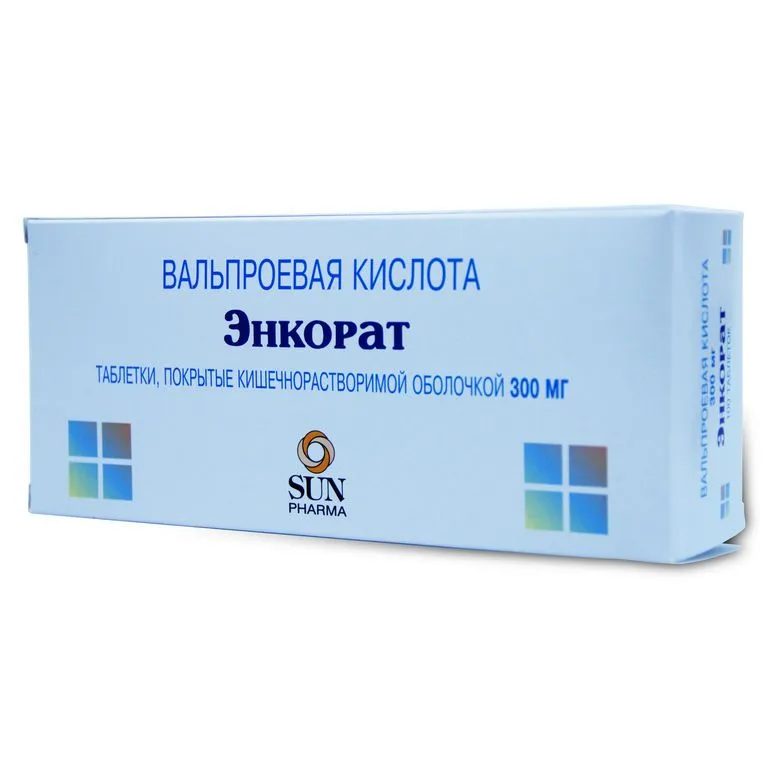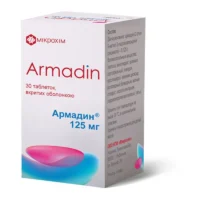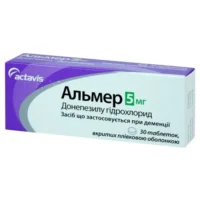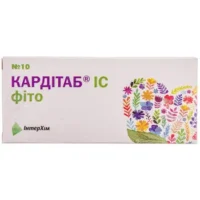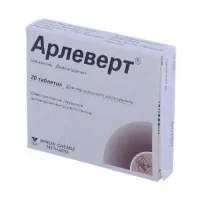Description
Encorat (Valproic Acid) Coated Tablets with Prolonged Release 300 mg. №30
Composition
Active ingredient: Valproic acid 300 mg.
Other ingredients: Cellulose, povidone, talc, methacrylic acid copolymer, triethyl citrate, colloidal anhydrous silica, magnesium stearate, hypromellose, macrogol 6000, titanium dioxide (E171).
Mechanism of Action
Valproic acid exerts its pharmacological effects by increasing the levels of gamma-aminobutyric acid (GABA), a neurotransmitter that inhibits brain activity. This action helps in controlling seizures and stabilizing mood in patients with bipolar disorder.
Indications
Encorat (Valproic Acid) coated tablets are indicated for the treatment of epilepsy, bipolar disorder, and migraine prophylaxis.
Contraindications
Do not use Encorat tablets if:
- You are allergic to valproic acid or any other ingredients in the product.
- You have a history of acute liver failure.
- You have a urea cycle disorder.
Usage Instructions
Take Encorat tablets orally with or without food, as directed by your healthcare provider. Do not crush or chew the tablets.
Benefits Compared to Analogues
Comparative studies have shown that Encorat tablets with prolonged release provide a more consistent drug delivery profile, leading to improved patient compliance and better symptom control compared to traditional immediate-release formulations.
Suitable Patient Groups
Encorat tablets are suitable for various patient groups, including children and the elderly, under appropriate medical supervision.
Storage and Shelf Life
Store Encorat tablets in a cool, dry place away from direct sunlight. Check the expiration date on the packaging and do not use the tablets beyond this date.
Packaging Description
Encorat tablets are packaged in blister packs to ensure product integrity and protection from external factors.
Clinical Evidence and Proven Effectiveness
Encorat (Valproic Acid) coated tablets have been extensively studied for their efficacy in the management of epilepsy and bipolar disorder. Clinical trials have shown that prolonged-release formulations of valproic acid offer better tolerability and reduced side effects compared to immediate-release formulations.

